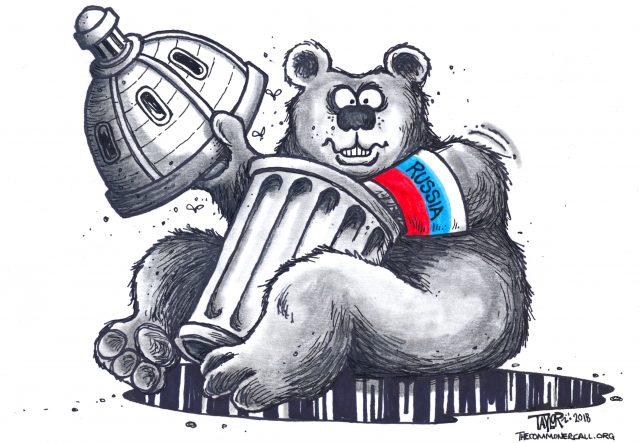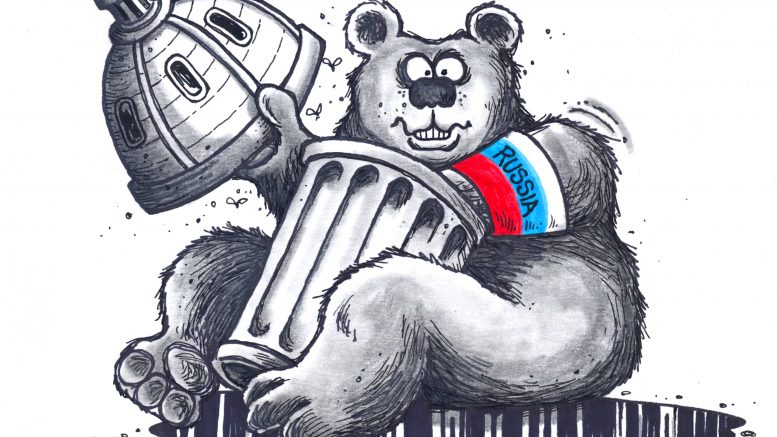
By Rafael Behr
The Guardian (11/13/18)
To understand the current political frenzy on both sides of the Atlantic, it helps to know Tortuous Convolvulus. Unfamiliar with his work? Convolvulus was a spy, operating around 50BC, a specialist in psychological warfare. He was deployed by Julius Caesar against a stubborn Gallic rebellion, and his methods were not so different to those of Russian cyber-saboteurs against western democracies.
It is worth adding that Convolvulus is a character from Asterix and the Roman Agent, a book known to most English readers in translation by Anthea Bell. The sad news of Bell’s death last month triggered many fond memories and one association with current events: the devious Roman provocateur who initiates a conspiracy theory about Asterix leaking the formula for the magic potion that allows the Gaulish village to defy Caesar’s garrisons. The fake news breeds mistrust and the villagers’ solidarity collapses.
The function of weaponised trolling online is not to advance an argument but to provoke a red mist of rage and mutual suspicion that impedes judgment and drowns out moderation.
That Convolvulus is a fictional character doesn’t diminish the relevance of his techniques. The point is that there is nothing new in disinformation, and no strategic genius in a campaign to destabilise societies by aggravating their divisions. It is cartoon-level espionage, simple but effective.
Boozy lunches in the Russian embassy
The fact of Russian meddling in the 2016 United States presidential election is not in doubt. The scale of complicity with the Trump campaign should soon be revealed by special counsel Robert Mueller. In the absence of an equivalent investigation in Britain, it is hard to know how much energy the Kremlin has put into influencing our own politics, but there are no prizes for guessing which side Vladimir Putin rooted for in the Brexit battle. Maybe Leave.EU’s Arron Banks was invited to boozy lunches in the Russian embassy, and offered privileged access to goldmine investments because of his amiable manners. It is likelier he made the guest list as a financier of anti-EU propaganda.
On a recent trip to the US I was struck by how engaged diplomats and former government officials were with the question of a Kremlin-sponsored Brexit. They saw compelling parallels with the torpedoing of Hillary Clinton’s White House bid, and were surprised that the story was not getting more traction. The New York Times has given it more prominence than most UK media. One report said London was “grappling with whether Moscow tried to use its close ties with any British citizens to promote Brexit”. That was misleading to American readers. There is no grappling. …
(Commoner Call cartoon by Mark L. Taylor, 2018. Open source and free for non-derivative use with link to www.thecommonercall.org )

